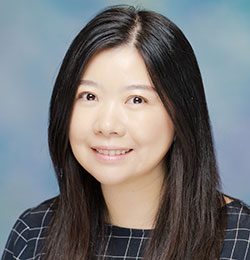Lin Tian, PhD, is the scientific director of the Max Planck Florida Institute. Before this, she was the professor and vice chair in the Department of Biochemistry and Molecular Medicine at the University of California Davis School of Medicine. Dr. Tian’s work is a combination of optical sensor development and application for functional analysis of dynamic neural circuitry in health and disease. Dr. Tian stands at the interface of neuroscience, protein engineering, optics, iPSC technology, pharmacology, and computational modeling. Her laboratory’s most recent breakthrough was developing a novel class of genetically encoded indicators to sense neuromodulators, key neurochemicals that influence the structure and function of the central nervous system. When combined with modern microscopy, these sensors can directly and precisely measure the spatiotemporal dynamics of neuromodulator release, repeatedly across the full-time course of a behavioral task, while other circuit components are measured and manipulated. With human stem cells and functional imaging, her lab develops stem cell-based disease models.
Collaborating PI
Lin Tian, PhD
Max Planck Florida Institute of Neuroscience
Lin Tian, PhD, is the scientific director of the Max Planck Florida Institute. Before this, she was the professor and vice chair in the Department of Biochemistry and Molecular Medicine at the University of California Davis School of Medicine. Dr. Tian’s work is a combination of optical sensor development and application for functional analysis of dynamic neural circuitry in health and disease. Dr. Tian stands at the interface of neuroscience, protein engineering, optics, iPSC technology, pharmacology, and computational modeling. Her laboratory’s most recent breakthrough was developing a novel class of genetically encoded indicators to sense neuromodulators, key neurochemicals that influence the structure and function of the central nervous system. When combined with modern microscopy, these sensors can directly and precisely measure the spatiotemporal dynamics of neuromodulator release, repeatedly across the full-time course of a behavioral task, while other circuit components are measured and manipulated. With human stem cells and functional imaging, her lab develops stem cell-based disease models.


